Steven Dryden
- 1991
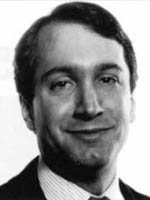
Fellowship Title:
- The Trade Warriors: USTR and America's Struggle in the World Economy
Fellowship Year:
- 1991
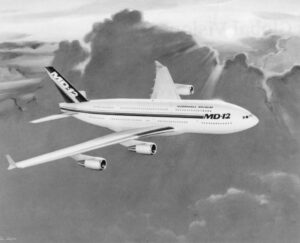
Bill Brock’s Global Visions
Former U.S. Trade Representative William Brock and John McDonnell, the chairman of McDonnell Douglas Corp., were talking at a business conference in southern California about two years ago when the conversation turned to the company’s future. McDonnell Douglas, a $17 billion-a-year enterprise, was in trouble. True, it was the nation’s largest military contractor, making jet fighters, attack helicopters, and gigantic transport aircraft like the C-17. But with the Cold War winding down, the U.S. military budget was sure to be cut, reducing government purchases from McDonnell Douglas. In addition, the company’s management was in chaos, and inefficiency seemed to rule the factory floor. William Brock, president of a Washington, D.C consulting firm, The Brock Group, is a – former US. Trade Representative. Particularly worrying for John McDonnell was the competition his commercial aircraft division faced from Boeing and Europe’s Airbus Industrie. He was hoping that renewed sales of civilian jetliners could make tip for the lost military business. But did the United States have the investment funds and the workers with less demanding salary requirements
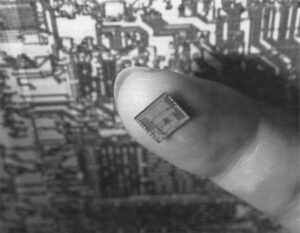
The Quiet Renewal of the Japan Chip Pact
When Deputy U.S. Trade Representative Linn Williams entered the White House Cabinet Room late in May of 1991, he was feeling both exhilarated and apprehensive. Just a few days earlier, he had completed months of delicate negotiations renewing the U.S.-Japanese agreement governing trade in semiconductors, the tiny bits of silicon circuitry that are the foundation of advanced electronics. Trade in semiconductor “chips” is one of the sorest points in U.S.-Japanese relations, fraught with charges by American companies that Japan has used predatory tactics to weaken a crucial high technology industry. A semiconductor chip, which technological advances have allowed to be made smaller and smaller. The chip trade is one of the touchiest parts of U.S. and Japanese trade relations. (Photo Courtesy of Melgar Photography, Santa Clara, CA) Others believed Japanese intentions were less threatening. They didn’t think the U.S. government was properly set up to save the U.S. semiconductor industry, nor could any government efficiently carry out such an effort. Within the White House, powerful figures such as then-chief of staff John Sununu and budget
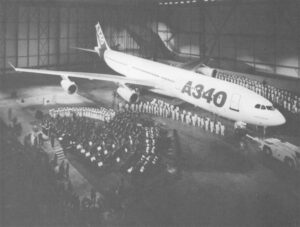
The Failed Crusade Against Airbus
George Prill liked to work on a large scale. As president of Lockheed’s international aircraft unit, he tried to make an unprecedented deal for the sale and production of L1011 jetliners with the Soviet Union in the mid-1970s. Later in the decade, he played a major role when Lockheed began building a $2 billion airbase for the Shah of Iran. That both ventures eventually crumbled convinced some colleagues that Prill, a stylish dresser with red hair, was too much of a gambler. To his admirers, the failures were just part of what insiders call the “sporty game” of risk-taking in the global aerospace market. The newest model of the Airbus was unveiled this fall, complete with orchestra. (Photo Courtesy of Airbus Industrie) In the spring of 1978, Prill launched another big project. American diplomats were in the fifth year of international trade negotiations known as the Tokyo Round after the city in which they began. Prill and other aircraft company executives feared the negotiations might not help their companies. For Lockheed, Boeing and McDonnell Douglas
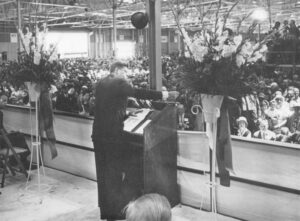
America’s Trade Warriors–Still Searching for the Right Weapon
On Seventeenth Street, just a short walk from the White House, is a handsome, five-story building that is one of the oldest government offices in Washington. Appropriately, it houses the Office of the U.S. Trade Representative (USTR), which deals with an issue that has bedeviled the United States since its founding days. The American Revolution, the War of 1812, the Civil War–all had their origins at least in part in disputes over the conditions of international commerce. USTR itself is of much more recent birth, arising out of a campaign for a trade bill by President John F. Kennedy in the spring of 1962. The climax of that effort came in the first week of May, when Kennedy flew to New Orleans to deliver a major address at a ceremony marking an expansion of the city’s massive port. As he spoke at the new Nashville Avenue wharf, set on the banks of the Mississippi River, the President discussed the importance of trade in U.S. history, and called on Congress to pass the new trade bill,
